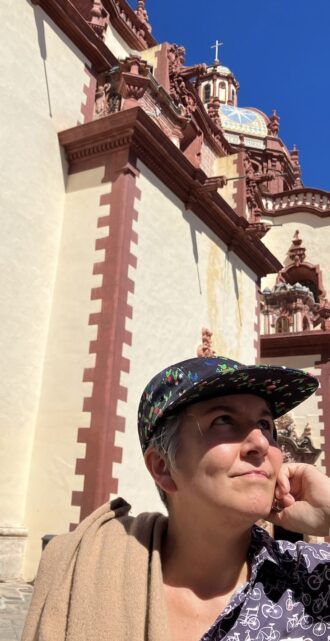Melissa Wray: Home Is Where the Hard Conversation Is
The Rural Regenerator Fellowship brings together individual artists, makers, and culture bearers, grassroots organizers, community development workers, public sector workers and other rural change-makers who are committed to advancing the role of art, culture and creativity in rural development and community building. Recently, we asked a collective of local writers to sit down with current Rural Regenerator cohort members to share more about their work.
For Melissa Wray’s final project in her arts management graduate program at the University of Minnesota, she produced a podcast called MinnePod, which gathered personal stories from communities across the state and explored the urban/rural divide. Amidst the increasingly contentious political environment leading up to the 2020 elections, Melissa had seen too many “un-nuanced stories” about that cultural chasm in the media, and she hoped her podcast would help ground the conversation in the lives of real people.
The podcast did something else: It brought Melissa’s own rural/urban divide into focus. She realized that “the Twin Cities didn’t need another artsy white woman” trying to talk about difficult topics like race and homophobia. In 2019, she decided to return home, to Caledonia, Minnesota, a town close to the sheep farm where she was born.
“In the Twin Cities, I thought we were having these conversations more, but it was an echo chamber where people agreed. Here, I can have more impact.” Her roots in rural southeastern Minnesota and her appearance help her broach the deep conversations she always wanted to have about difficult topics like race. “I present in a safe way,” she says, and that gives her plenty of daily openings for discussion, like running into a neighbor at the grocery store. “I think about all those little interactions that add up. Being here, I have those conversations more than I ever did in the Twin Cities.”
With some other rural Minnesotans, Melissa started Mainspring, an arts organization in Caledonia, to build community through the arts. Mainspring is located in a building on Main Street that formerly housed a Presbyterian church, and hosts art shows, music performances, writing and visual arts workshops, and more. Dear to Melissa’s heart is Mainspring’s youth programming, designed to fill a gap she experienced growing up.
“I didn’t see arts as a youth and decided to leave,” she says. “Caledonia is often known as a sports town, a great football town—that’s a wonderful thing for our town to have, but as a kid I didn’t have models in the arts.”
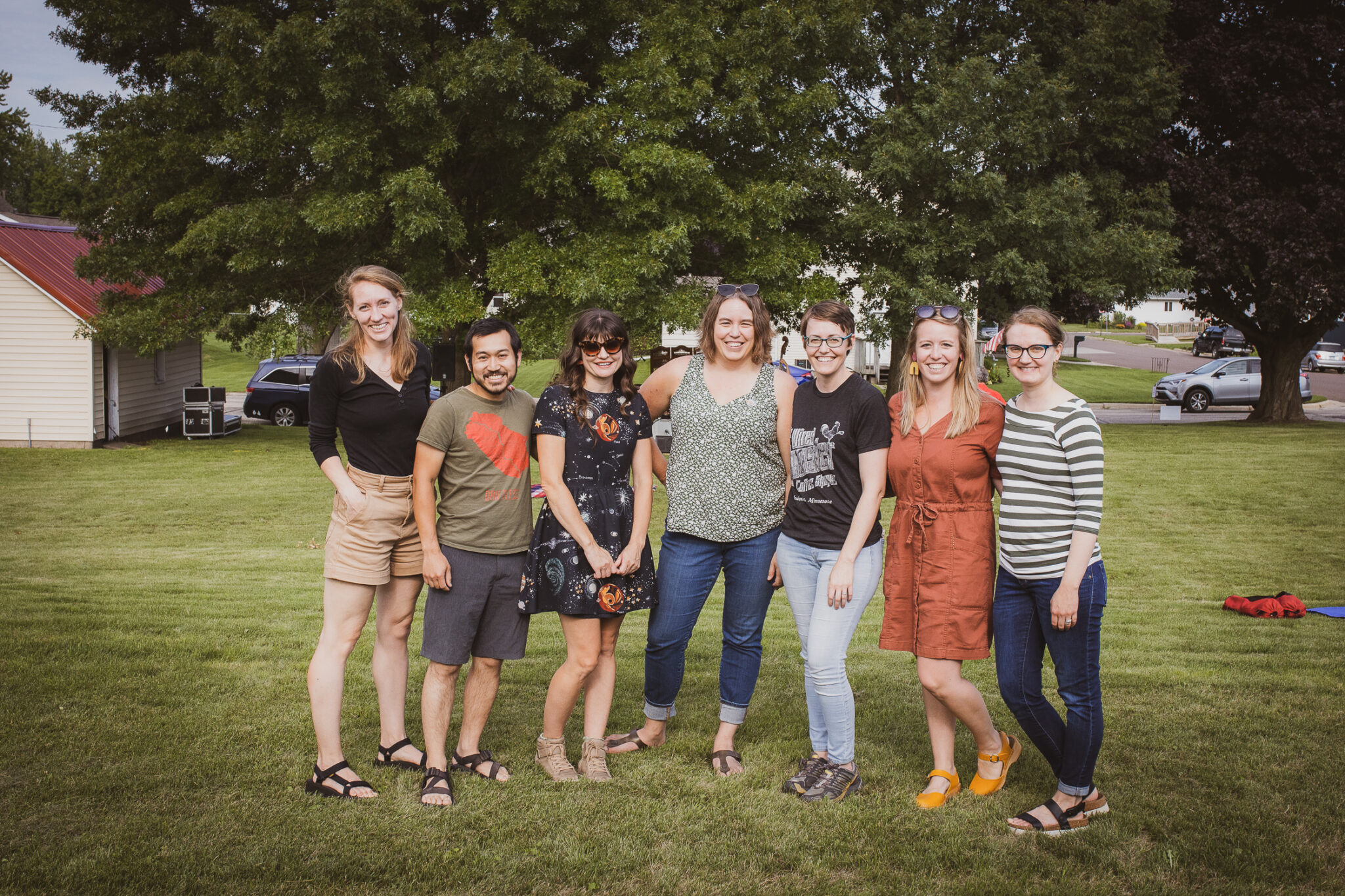
Creativity and Conversations
In addition to her work as cofounder of Mainspring, Melissa is the full-time Program Director at Lanesboro Arts, a multidisciplinary nonprofit that runs the St. Mane Theatre, a gallery, an artist residency, and other arts programs in Lanesboro, another small town about 40 miles away.
For much of her artistic career, Melissa has identified as a writer, primarily as a poet. Recently she’s been writing creative nonfiction, for her own purposes, she says, not for publication. “I just started coming back to poetry. I had lost the spark.” A recent visit by poet Su Hwang to Lanesboro Arts rekindled Melissa’s enthusiasm. After staffing four workshops with Hwang, Melissa is back to writing poems and “there’s now a whole group of writers who want to continue meeting and writing.”
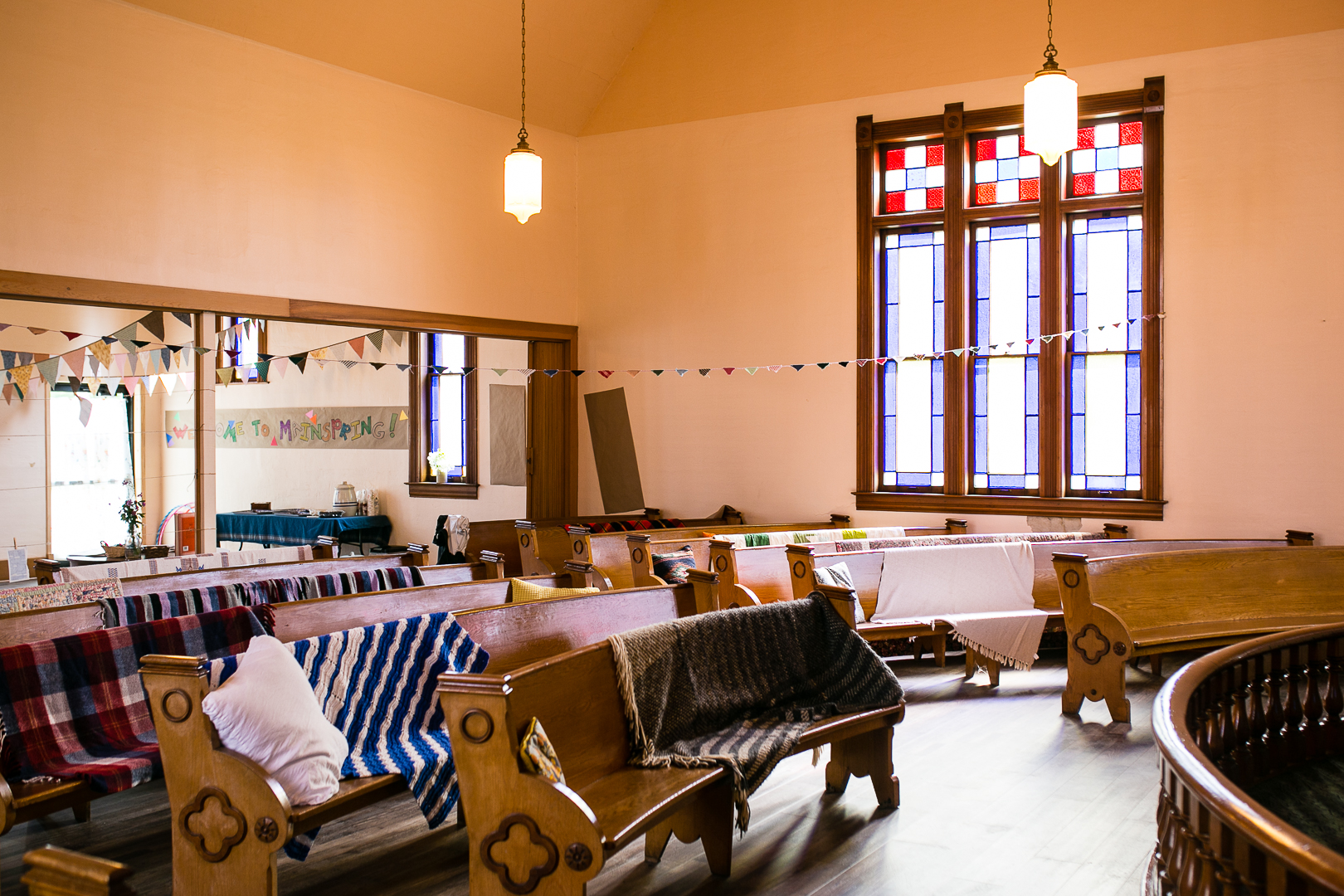
Textile art is a newer endeavor. “I’ve sewn my whole life. I was a 4H kid who had to sew a project every year,” she says. “I’ve always done garments, but in the past year I took a quilting class on Zoom.” Now, she loves to make quilts and gift them to people, but she’s been wondering what other possibilities quilting can offer. “I love the legacy of things but I like taking the traditional form in a different way, subverting it.”
What exactly does Melissa have in mind?
“Radical quilting bees,” she says.
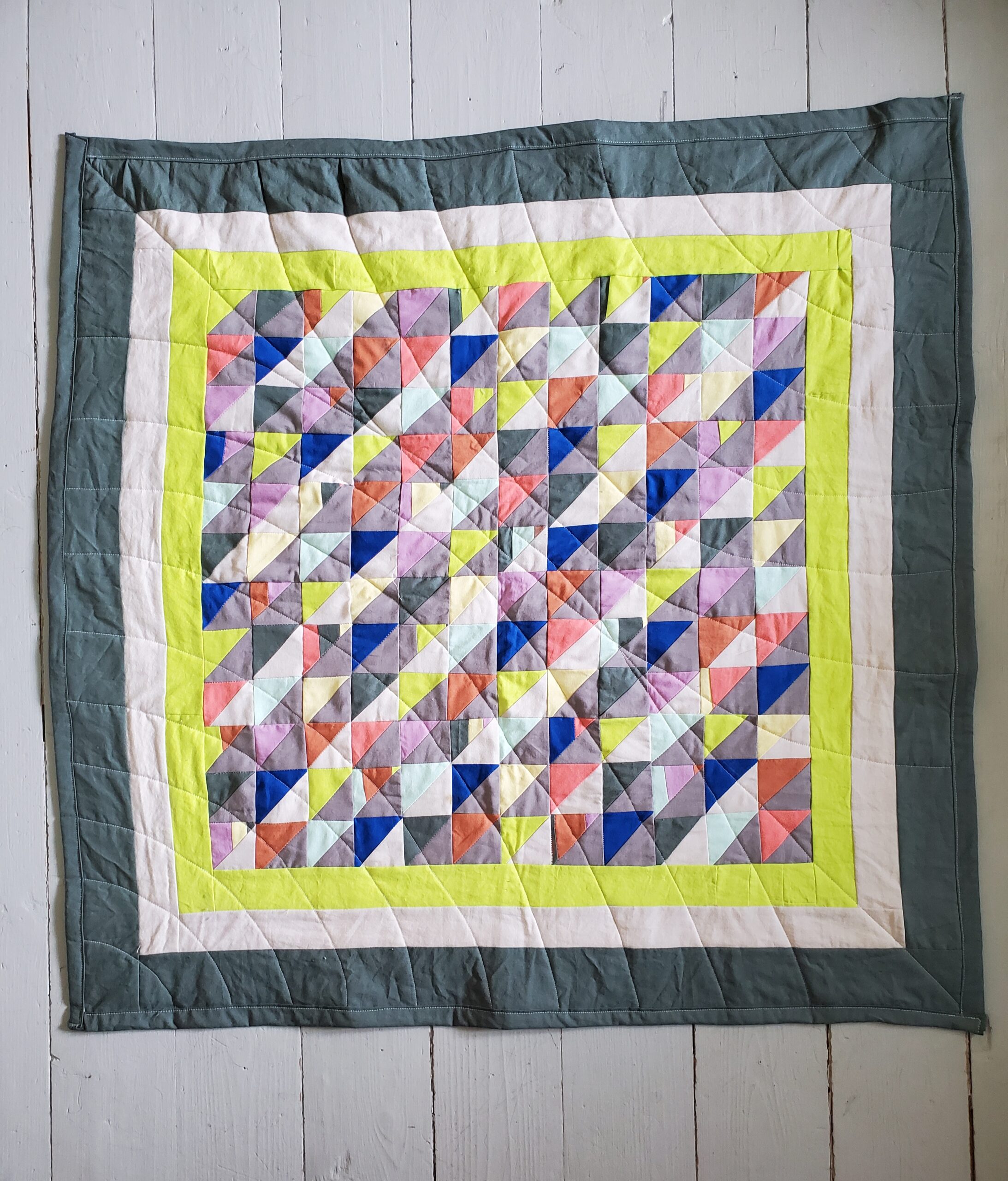
“I want to have a quilting bee for people who are interested in informal but intentional conversations about topics that are hard to talk about in rural areas, like racism, homophobia, domestic violence,” Melissa says. “All these things that are really easy for people who live in rural places to ignore but they’re hidden in every action. People say, ‘How do we make our rural communities more diverse?’ But I ask, ‘What are we doing that makes people not want to live here?’”
She believes that getting people working with their hands, especially doing an engaging task like piecing a quilt, will help people approach these topics more bravely. “I love that quilting meets a lot of different communities in a lot of different ways. Talking about things is important but doing something at the same time takes some of the edge off. Research shows using our hands helps our mental health, so I’m wondering how we do that as a community.”
Melissa has planned a series of Mainspring workshops to introduce sewing and quilting skills to the community—and then she’ll convene those radical bees. Some of the quilts they make will serve as sound-absorption panels to quiet the echoey space of the old church. One quilt will be auctioned off to support another labor of love: a makers studio she has planned for Mainspring’s basement. The studio will provide supplies and equipment “for sewing, letterpress printing, drawing, etc., so people don’t have to invest a lot to learn a new practice.”
All of Melissa’s efforts are promoting a more vibrant way of life for her rural community: a life of curiosity and creativity, of connection, in a place that could learn to welcome everyone with a genuine embrace. She celebrates the influx of entrepreneurs to Caledonia, like her sister’s coffee shop, The Wired Rooster, a new farmers’ market, and a shop selling vintage wares. “Once a person does a thing, it kind of gives others permission, like, ‘Oh, I can do this thing.’ It’s all about creating as many points of interaction for the community as possible.”
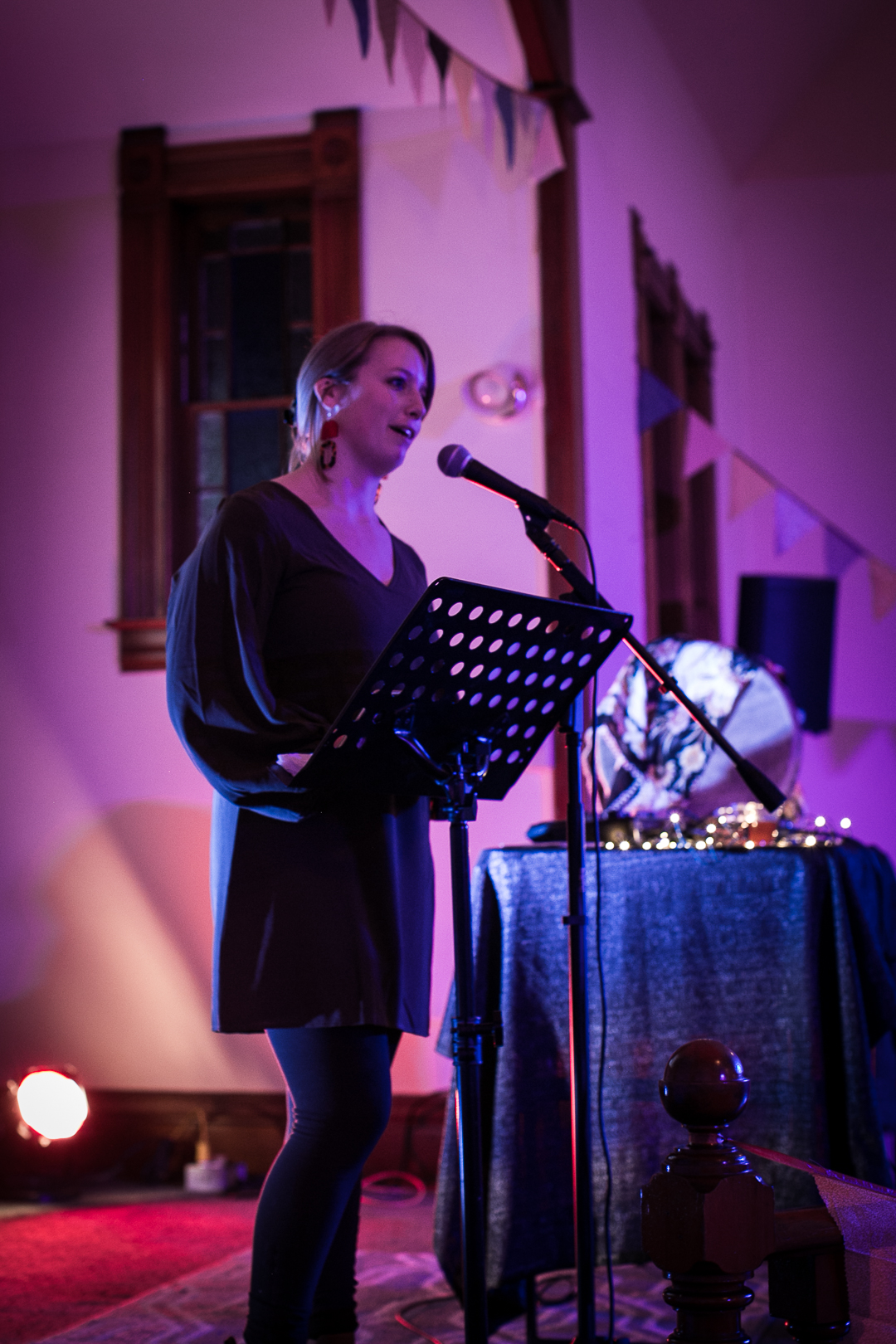 The Road Ahead
The Road Ahead
The Rural Regenerator Fellowship has provided a financial boost, as she figures out how to make a rural life in the arts sustainable. Equally important is the support she gets from her fellow Regenerators. She notes that “this second cohort has come together in a way that is so meaningful. Everyone is so talented, and we interact with respect and encourage each other. I feel so lucky to be part of this new family.”
She knows that creating a rural community rich in arts, opportunities, and diversity will take time. “But the hope,” she says, “is in doing the work. I know that it’s going to be a long road, but I’m on it.”
And, with her colleagues at Mainspring, Lanesboro Arts, and the Rural Regenerator Fellows, she can confidently say, “I’m not on that road alone.”
About the Author
Jennifer Morales [any human pronoun] is a poet, fiction writer, and performance artist whose work wrestles with questions of gender, identity, complicity, and harm. Raised in the Chicago area, they spent nearly 25 years in Milwaukee. They earned their MFA from the Creative Writing program at Antioch University-Los Angeles in 2011. Jennifer’s first book, Meet Me Halfway (UW Press, 2015), a collection of interconnected short stories about life in hyper-segregated Milwaukee, was the Wisconsin Center for the Book’s 2016 “Book of the Year.”
Continue Reading
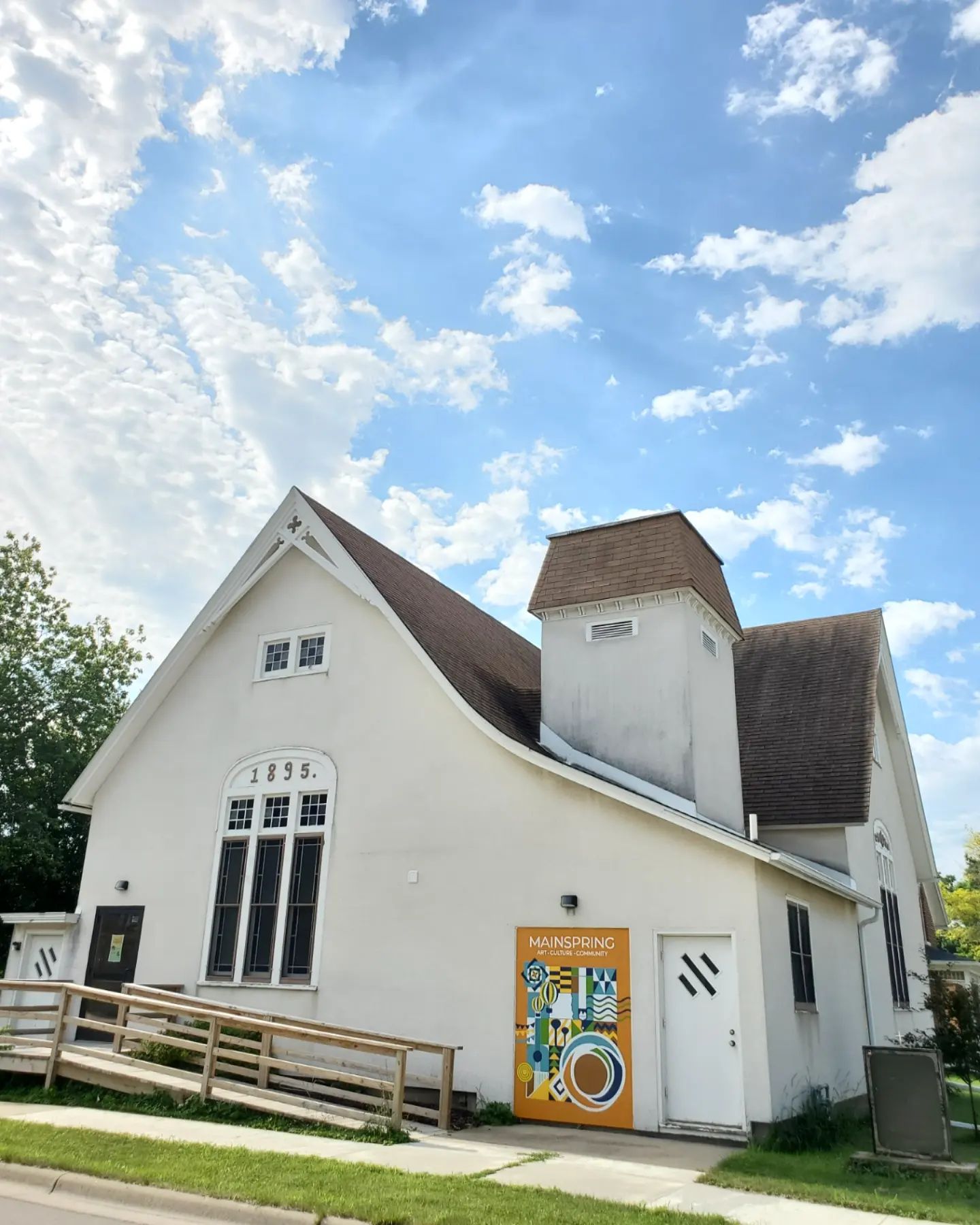
A nonprofit community arts organization offering events, classes, and resources in Houston County, Minnesota.
